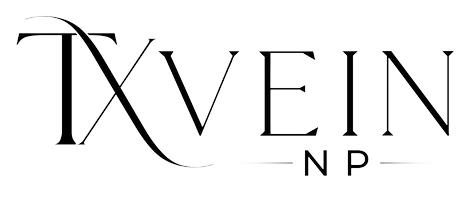- 940-233-8181
- Open 9:00 AM – 5:00 PM

The Role of Nurse Practitioners in Chronic Venous Insufficiency Management
Chronic Venous Insufficiency (CVI) is a common condition affecting the veins in the legs, leading to symptoms like swelling, pain, and skin changes. Managing CVI effectively requires a comprehensive approach, and nurse practitioners (NPs) play a pivotal role in this process. At TX Vein & NP, our dedicated nurse practitioners specialize in diagnosing and treating venous disorders, providing personalized care to improve patient outcomes. This blog post explores the crucial role of NPs in managing CVI and the innovative treatments they administer.
Comprehensive Assessment and Diagnosis
The first step in managing CVI involves a thorough assessment and accurate diagnosis. Nurse practitioners at TX Vein & NP are trained to perform detailed evaluations, including medical history reviews and physical examinations. They utilize advanced diagnostic tools, such as Duplex ultrasound, to assess the blood flow and structure of leg veins. This comprehensive approach ensures an accurate diagnosis, which is crucial for developing an effective treatment plan. Learn more about our diagnostic services on our Vein Health Services page.
Personalized Treatment Plans
Based on the diagnosis, nurse practitioners develop personalized treatment plans tailored to each patient's specific needs. These plans may include a combination of lifestyle changes, medication, and procedures. NPs educate patients on effective strategies to manage symptoms, such as elevating legs to reduce swelling and wearing compression stockings to improve blood flow. For more complex cases, NPs may prescribe medications to decrease inflammation or enhance vein function or recommend surgical options when necessary.
Advanced Treatment Procedures
At TX Vein & NP, nurse practitioners are skilled in administering advanced treatments for CVI, including minimally invasive procedures that provide relief with less downtime and risk than traditional surgery. One of the innovative treatments they perform is endovenous thermal ablation, a procedure that uses heat to seal affected veins. Another option is sclerotherapy, which involves injecting a solution into the vein to close it. These procedures are performed under the guidance of NPs, ensuring high standards of care and safety. Detailed information about these treatments can be found on our Treatment Options page.
Ongoing Care and Support
Managing CVI is an ongoing process that requires regular monitoring and support. Nurse practitioners provide continuous care, adjusting treatment plans as necessary and monitoring for any changes in condition. They also support patients in maintaining healthy lifestyles to prevent the progression of CVI. The relationship between patients and their NPs is based on trust and communication, ensuring that patients feel supported throughout their treatment journey.
Nurse practitioners are essential members of the healthcare team, especially in the field of venous health. Their expertise in managing chronic conditions like CVI allows them to provide high-quality, patient-centered care. At TX Vein & NP, our nurse practitioners are committed to helping patients achieve the best possible outcomes through expert care and advanced treatment options. If you or someone you know is struggling with symptoms of CVI, don't hesitate to contact us. Visit our Contact Us page to schedule an appointment and start your journey to better vein health today.
